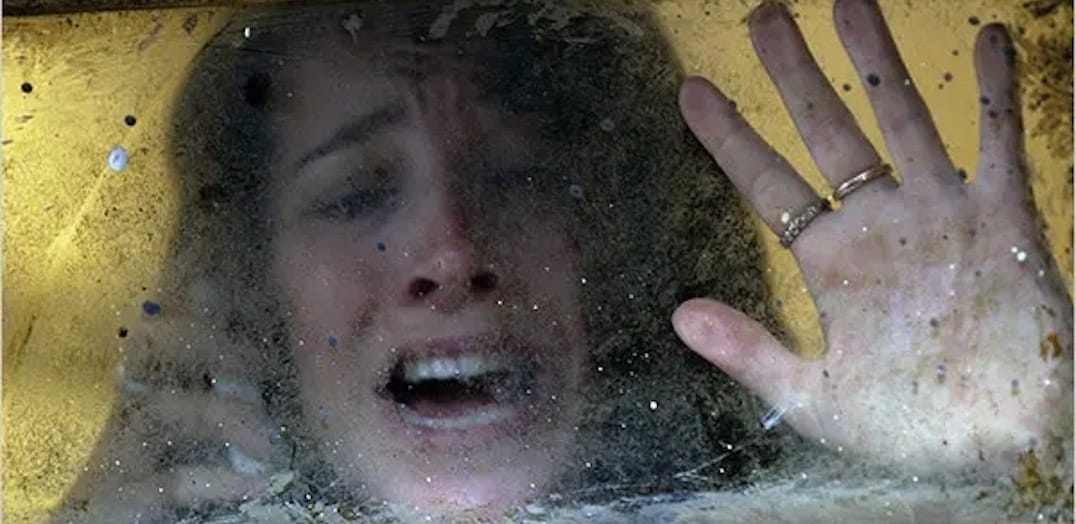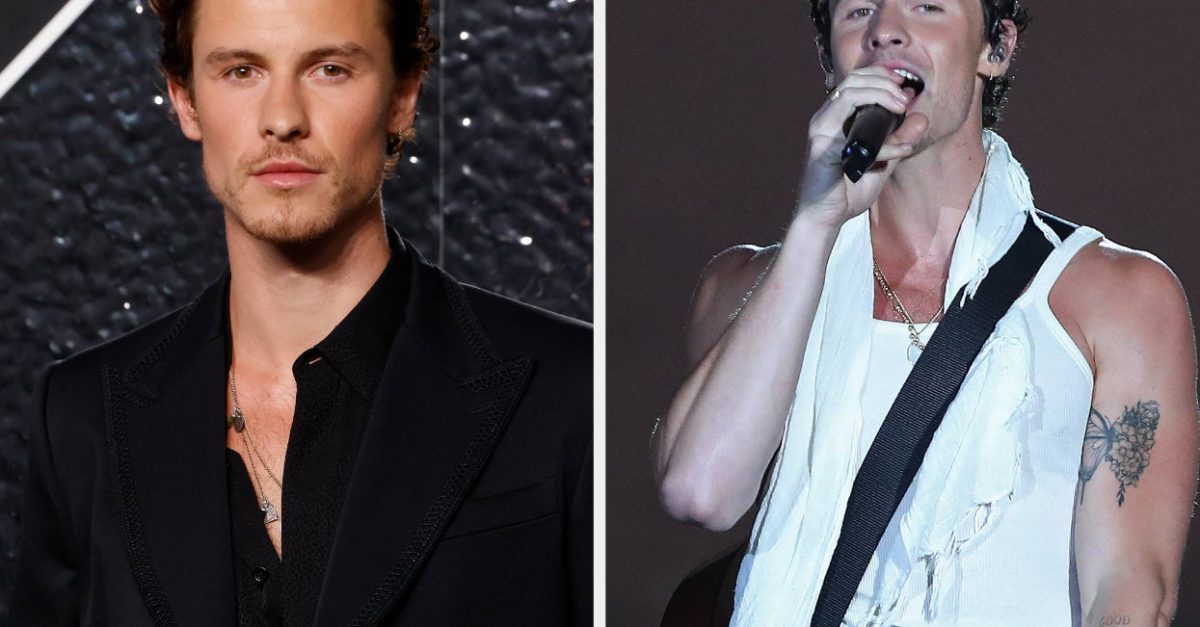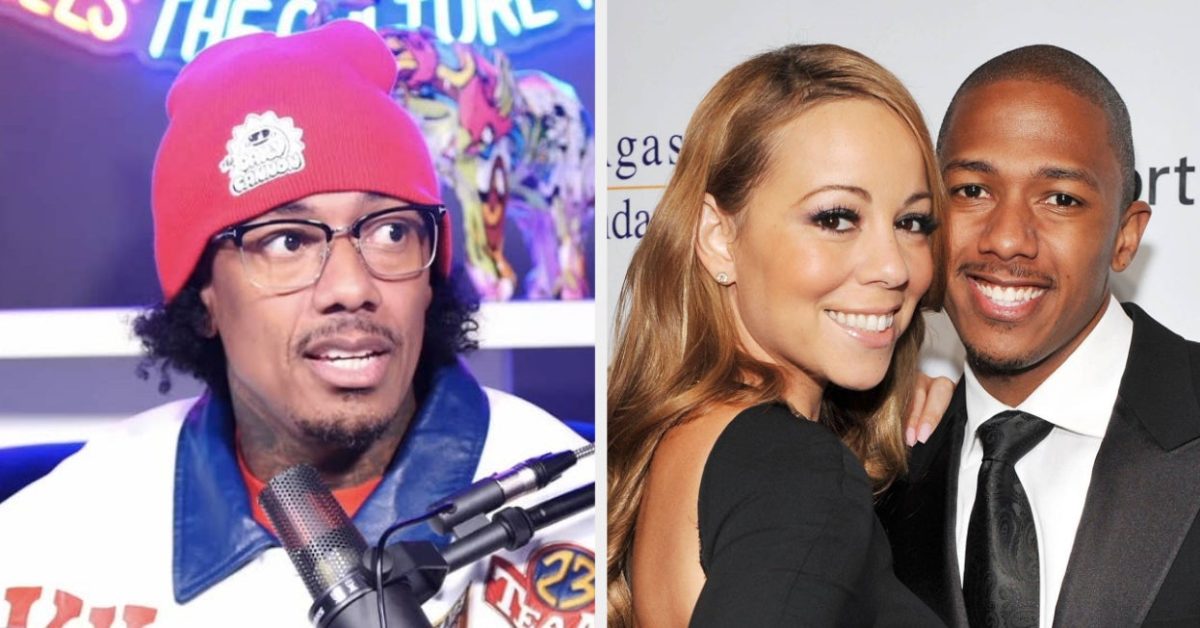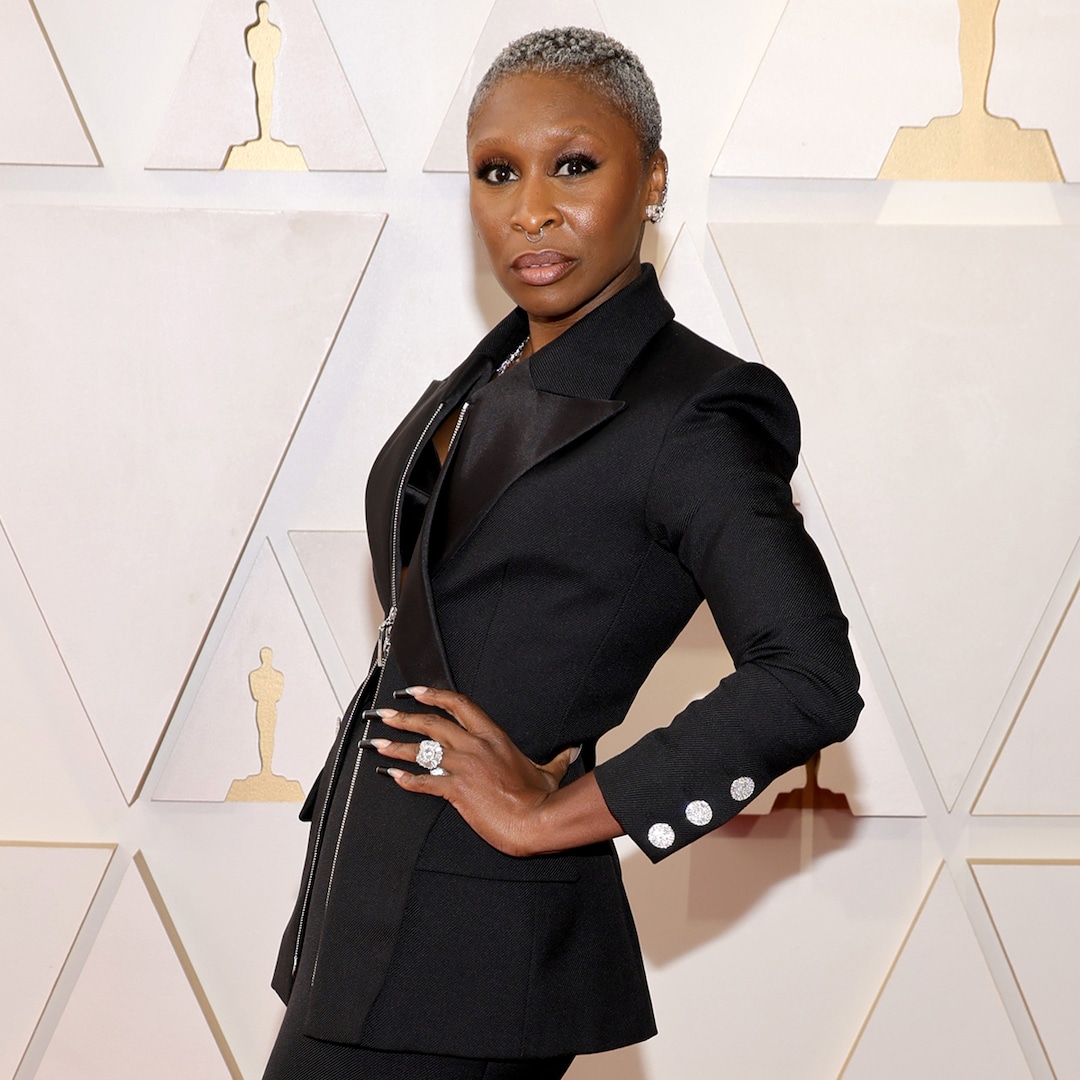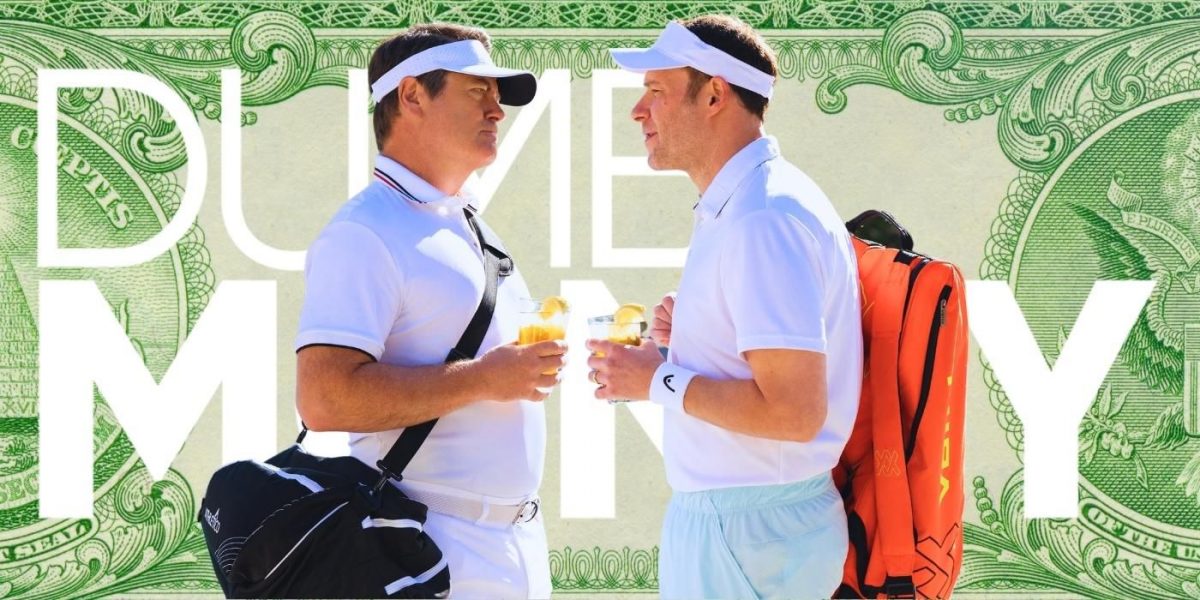
‘Dumb Money’ Writers Committed to Showing the Reality of This Perfect Storm
Oct 5, 2023
The Big Picture
Dumb Money takes a critical look at the opaque and rigged nature of Wall Street, highlighting the lack of transparency in the system. The film aims to capture the diverse range of individuals involved in the GameStop movement, from retail traders to financial professionals, showcasing their motivations and experiences. The perfect storm of events, including the pandemic and increased isolation, exacerbated income inequality and fueled the GameStop movement, exposing the disparities between the wealthy elite and the average person.
From director Craig Gillespie, Sony Pictures’ Dumb Money is a comedy-drama showdown between Wall Street bigwigs and Reddit investors that’s created a sizable buzz since its theatrical release due in large part to its ensemble cast and outrage surrounding the scandal at the heart of the film. While promoting the film, co-writers and producers Lauren Schuker Blum and Rebecca Angelo spoke with Collider’s Steve Weintraub about the ins and outs of the script and why this one will definitely leave audiences thinking well after the credits roll.
Based on the book by Ben Mezrich and the real-life experience of “Roaring Kitty,” aka Keith Gill, Dumb Money takes The Wolf of Wall Street approach to telling the true events of amateur investor Keith Gill, played by Paul Dano. With a narrative that’s “fast and choppy and propulsive and energetic,” the film takes a look at the faith Gill put into the brick-and-mortar business, GameStop, against the titans of Wall Street, and shared his knowledge online, amassing a following. While suits like Seth Rogen’s Gabe Plotkin bet against the smaller business in the wake of a pandemic, the retailer’s stocks began to rise, alerting the upper crust as billions were at stake. Dumb Money also stars Pete Davidson, Vincent D’Onofrio, America Ferrera, Nick Offerman, and Sebastian Stan.
During their interview, Blum and Angelo talk business, from their time spent on Wall Street to Hollywood and the many projects they’ve worked on with filmmakers like Rogen and Gillespie. They share the insight they gleaned from interviews conducted themselves, discuss why they wanted to include TikToks of real people in the film, “the perfect storm” of events that led to the events of the movie, their deep respect for Gill and his family and their support of Dumb Money, and what’s up next for them. For all of this and more, check out the full interview in the video above or you can read the transcript below.
COLLIDER: Congrats on the movie. I thought you guys great job, especially because I read that the movie was made in 31 days, and I don’t understand how you pull that off.
REBECCA ANGELO: I don’t really understand it either, so if you learn and could tell us that would be great.
LAUREN SCHUKER BLUM: Well, we do know, which is that Craig Gillespie never stops rolling.
ANGELO: He’s a mad genius.
BLUM: Like, literally, he just says, “And again,” and there’s no cutting ever. So we rolled for 31 days straight.
Custom Image by Annamaria Ward
That sounds about right, actually. One of the things about this is I left the theater angry because it reminded me of things and not in a bad way. The movie is fantastic, I was just angry at how rigged the system is.
ANGELO: Yeah, so are we.
For both of you, what did you learn while researching all this about hedge funds and Wall Street that got under your skin that you really just want to tell people to remind them that the system’s fucked? Sorry for my language.
BLUM: We love it.
ANGELO: Yeah, we agree.
BLUM: I think first and foremost is how opaque Wall Street is and how it’s designed to be hard to understand. We had covered finance for the Wall Street Journal’s reports before we were screenwriters, but there were all kinds of things we didn’t know about, like the DTCC, which is a body that regulates the whole stock market.
ANGELO: Yeah, it sounds like a government body, by the way – the DTCC is the subsidiary of the NSCC. Not at all.
BLUM: In fact, people don’t even own the stocks they think they own, actually the DTCC does. But you know, that all sounds very wonky. The point being, the system is not transparent by design, and I think that’s part of what has led to so much anger about the system being rigged. It’s on Wall Street, it’s also in Hollywood. We’re here as producers of the film, but we’re also writers of it and part of the WGA and very proud that our union is actually fighting for more transparency, which is the only path back to fairness, we feel like, whether it’s in Hollywood or on Wall Street.
I could devote this entire interview to transparency from the streamers.
ANGELO: So could we.
Image via Sony
Do you think there’s ever gonna be full transparency? Because I think that the streamers are sort of hiding the hits. They don’t want to report anything because then everything– Man, it’s a big subject.
ANGELO: I mean, light is the best disinfectant, right? Any time someone is holding information back and not sharing it, especially with the participants, with the people whose labor contributes to that viewership, you have to ask why. Why not share it? What are you hiding?
Again, the entire interview could be this, but let me jump back into the film. You obviously only have two hours to tell the story, and you use the book as the source material, but how did you decide what characters to focus on? There could be so many people whose stories could be told, so how did you decide?
BLUM: It was very hard. It was very important to us to show every side of the story, to show the Wall Street side, the retail trading side, to get into Robinhood. We had a GameStop employee who actually brought us into the store, played by Anthony Ramos. And also, as we did our own research and really talked to people who invested in the stock and were on Wall Street bets, we were struck by the tremendous diversity of people who bought GameStop and were on Reddit talking about it. It was important to us to really show the different kinds of people who invested, so we have America Ferrera’s character, who’s a nurse, investing, and then we have Roaring Kitty, who [has] more financial experience.
ANGELO: We have the college students, we have the GameStop employee who became an investor in the movement, and all of those character portraits were drawn from interviews that Lauren and I did in addition to what we read in Ben’s book. We love Ben, and the book is great, but we met so many people and heard personal stories, not just looked at their balance sheets and saw how much they won or lost in terms of dollar figures, but really understood why, as human beings, they were compelled to join this movement, why they were angry, what they wanted, and how maybe they felt small before and how joining this made them feel part of something big and something important. And that’s what we were excited to tell. So we wanted to try to capture—and you’re never going to do it perfectly—but we wanted to try to capture, to the best of our ability and with the limits of time, a good array of experience.
BLUM: And we wrote characters that were actually cut from the script, but we felt like one way of bringing in the full movement was to have these TikTok videos that are kind of running it through the movie as a chorus that are real, that we found in researching the film and we had them in the script as well, that sort of show other people in the movement and bring in those voices.
ANGELO: There are obvious comparisons here, and we hear them all the time, to The Big Short, The Wolf of Wall Street, to The Social Network—the classic finance and technology movies—but we also looked a lot at Frank Capra and the history of populace cinema and tried to kind of, as grandiose as it sounds, create a new language of populace cinema for this generation. Capra was very effective at elevating a regular man’s life into something worthy of the big screen, and one small way that we tried to approach that was integrating at the script level real TikToks of real people who are part of this movement so that when you watch the movie, you don’t just see actors playing characters who invested in GameStop for one reason or another, you see real people, dozens of them, who participated in this movement too.
BLUM: It felt radical to say these people deserve the big screen treatment, but it also felt really right for the story to make them part of it.
Image via Sony Pictures
I remember when all this was happening, and I’m curious of your opinion, do you think if the pandemic hadn’t been happening, if you couldn’t trade on your phone, a convergence of all these different things that made it so people were on Reddit and paying attention…?
ANGELO: The perfect storm. It took things that had been happening in our world for a long time [like] people being more isolated, feeling lonelier because of the internet and social media, it took income inequality, which has already been a galling problem for a generation or more, and ratcheted it up times 1000. The pandemic was kind of fuel on the fire that brought all these things together and created the perfect storm, right?
BLUM: Right. It was that moment where you would be doing a Zoom with your boss, and your boss was at home and you would see they live in this huge mansion, right? People really saw who had stuff and who did not for the first time. We tried to reproduce that in the film as well.
ANGELO: Yeah, you see it in the movie who’s wearing a mask and who isn’t, who’s telling you to put your mask on, and who’s grabbing a breath of fresh air on the bus.
BLUM: Right. Who rented out an entire resort to move their firm down to Florida—Ken Griffin—and who’s stuck in their basement.
ANGELO: Yeah, true story.
No, 100%. I, while obviously not some savvy stock person, I had Robinhood, and it was after what happened with GameStop that I ditched that app because I was so angry at what they did.
BLUM: Well, and that’s back to the transparency question, right? Because Robinhood advertised themselves saying, “We have commission-free trading, and it’s free, but actually it’s not free, and you, the user, are actually paying for it in a hidden way.”
100%. For both of you, this is your first film, what is it like getting this cast in the movie? Obviously, it’s like this all-star line-up of people – have you thought about playing the lottery?
BLUM: Good question.
ANGELO: It’s our first produced film, but we’ve been working together as a writing partnership for almost 11 years now. So we’ve written a lot of movies, and in fact, we’ve worked with Seth Rogen quite a bit in the past, although none of those efforts ever reached the screen.
BLUM: And with Craig Gillespie. This is our third outing with Craig. It’s finally the one that got made, but we could, like, paper the floor of this room with scripts that did not get made that we sold. But we feel very lucky that this is the movie that got made.
ANGELO: And also, there aren’t that many movies like this getting made, an adult drama with comedy. We say that the closest thing to a superhero cape in this movie is the red headband that Keith Gill wears, and so it’s a miracle that this got made. And in order for it to get made, everybody had to take a pay cut. This wasn’t some big streamer movie where everybody got a huge payday. Everybody believed in the story we were telling, and they did it for a fraction of what they normally make in order to tell it.
BLUM: And it was independently in New Jersey with a big tax credit, which is how it got done.
Image via Sony Pictures
Well again, let’s go back to the 31 days of shooting. That is not a movie that has a lot of money.
ANGELO: No, it was breakneck.
BLUM: No, I mean, all the money is on the screen. We didn’t have a big video village. Most days, we would stand behind Craig at the monitor, and again, he shot the whole time basically to get every minute in there.
I’m curious, with Roaring Kitty, with something like this, did you actually get to talk to him? How does it work in terms of his life rights and using the story?
ANGELO: One thing that’s great about Keith Gill—I mean, there are so many things that are great about Keith Gill—is that he’s a really singular figure in that he is a reluctant hero. It feels like we live in a time where everybody wants fame and attention, and here is a person who really believes in something and so brought his conviction to the internet, but didn’t do it really for the money or for the attention because since then he has lived such a private life. So for us as screenwriters and as just responsible, moral human beings, it was important to us that even though he became a huge public figure, and with him, his family became public figures to a degree, we wanted to both respect their wish for privacy and also give them the opportunities that we would want if we were ever so lucky as to be in his situation, to participate in the process. So we reached out to them throughout the process, and then we drove to them and said, “We’ll show you the movie if you want.” We want to respect their right to privacy, so we won’t go into that anymore, but we will say that they are the smartest, coolest, nicest people.
BLUM: Funniest people. It’s very clear Keith got all this from his family. They’re as extraordinary as he is.
I’m from the New England area and I thought the depiction of Brockton and all that was great. My only complaint about the entire film is very important; the movie takes place in Brockton, but you do not have anyone drinking Dunkin’ Donuts.
BLUM: We do in the opening shot!
ANGELO: As a matter of fact, in the opening scene Keith Gill is on the subway, his leg is jiggling, and he has a Dunkin’ Donuts cup.
BLUM: I have to tell you because I’m from Boston, and I’m addicted to Dunkin’. My mother got hypnotized for her Dunkin’ addiction, so this goes way back in my family.
ANGELO: He even takes the mask down…
I apologize. You’re right. I missed the Dunkin’ in that shot.
BLUM: But you know what? I feel like you’re a real Boston person if that’s what you noticed.
Because any time a movie takes place in the New England area and characters are not drinking Dunkin’, well, it’s not real.
BLUM: We’ll tell you also, when we went to go meet the Gill family, we brought them Dunkin’ Donuts.
As you should. So I’m curious with the editing room, I’m not sure how involved you were in the edit all the time with Craig, but how did the film possibly change in the editing room in ways that you guys didn’t expect?
BLUM: Oh, great question. We had an extraordinary editor on this movie, Kirk Baxter, who only does David Fincher’s films, and then exception for this. It was such a complicated film to edit because there’s so much real footage that has to be kind of integrated in. We said when we first started writing we wanted the film to move like a bat out of hell, to quote the great Billy Friedkin.
ANGELO: We also wanted it to feel like the experience of being on social media, so fast and choppy and propulsive and energetic, where you really get caught up in it. In order to do that, it’s not, you know, seven-minute scenes, it’s short scenes, and it’s scenes where people who never met each other and never are in the same room, we have to show the way that community came together, the way they were bouncing off of each other, getting each other excited, confronting each other. So, to do that, you really need kind of like an overlay of scenes, so it’s one scene jamming into the next. So the edit, is it is a lattice work.
BLUM: It is a masterpiece. We would go out every so often to see the cuts with Kirk and Craig, and the film would get shorter and shorter and shorter. [Laughs] And they’d be like, “Great news, it’s down to one hour and 42 minutes!”
ANGELO: Yeah, to us, one of the highest priorities of this was that you don’t need to know a single thing about the stock market to totally get the movie and to enjoy it. So I think one of the surprising things was figuring out how much to explain and how much to withhold, and I think we erred on the side of just not getting into it, not bogging down the movie with a complex explanation of what call options are and how they work. The thing that matters most is the emotional ride through this David and Goliath story.
BLUM: And I also think trusting the audience to understand the basic mechanism that we’re explaining. Like, we showed the film, we did test screenings in Oklahoma City, and it was like the more we put in explanations, I think people then felt bored. It actually is better just to trust the audience to go on the ride with the characters.
Image via Sony
A lot of times, movies water down everything. The audience is smarter than you give them credit for.
BLUM: Exactly.
ANGELO: 100%.
BLUM: That’s the whole irony of Dumb Money, right? It’s like these actually are smart investors who are wearing this insult from Wall Street as a badge of honor.
I think that the movement and what happened fundamentally changed Wall Street, and the “dumb money” is no longer dumb.
ANGELO: I agree with you. And invisible people are no longer invisible. This is a community of people, millions of people, that Wall Street treated with scorn, if they treated at all, and now they will never be ignored again.
BLUM: And I’m sure Wall Street would love to say like, “Oh no, we’re back to business.”
ANGELO: Yeah, “It was a one-off.”
BLUM: That’s not true. There’s apps now that track where retail investors are going to be trading. People at the big hedge funds are looking at this, they’re shorting less, there’s all kinds of legacies from this, and the story is not over. It’s continuing. GameStop had earnings yesterday, so we’ll see what happens.
I think that the shorting going forward is you can’t do it because people are too smart now.
ANGELO: Yeah, short positions have gone up and down since GameStop but never reached the level of pre-GameStop. People really learned on Wall Street that a naked short sets you up for infinite losses, and it’s too risky to do anymore.
Do you know what’s coming up next for you guys in terms of producing?
LAUREN SCHUKER BLUM: Yeah, we do. We’ll tell you one thing that hasn’t been reported yet, which is we have written a theatrical feature film version of Murder She Wrote for Universal, and we’re really excited.
REBECCA ANGELO: Yes, it’s with Pascal Pictures in Pascal and Universal, and we’re very excited to bring…
BLUM: Jessica Fletcher to the big screen.
Is it one of these projects that Universal is gung-ho on in terms of, have you already started talking about casting?
ANGELO: They seem very excited.
BLUM: They seem pretty gung-ho, yeah.
ANGELO: We wouldn’t have told you if they weren’t. [Laughs]
BLUM: We haven’t talked to them, obviously, in months because it’s a strange time.
ANGELO: But I think everyone feels like it’s Jessica Fletcher’s moment to return.
Dumb Money is now in theaters.
Publisher: Source link
Shawn Mendes Says He’s Figuring Out His Sexuality
“It always felt like such an intrusion on something very personal to me. Something that I was figuring out in myself, something that I had yet to discover and still have yet to discover it,” he shared.“The real truth about…
Oct 31, 2024
Cops Search for Stolen Cheddar Worth $390,000
Now this is one un-brie-lievable heist. Neal's Yard Dairy, an artisanal cheese company based in London, said they have suffered a "significant financial blow" after $390,000 worth of cheddar was stolen by a "fraudulent buyer posing as a legitimate wholesale…
Oct 31, 2024
Nick Cannon On Insecurities In Mariah Carey Marriage
Nick Cannon On Insecurities In Mariah Carey Marriage For a reminder, Nick and Mariah secretly tied the knot in 2008 after starring together in the music video for her song, “Bye Bye.” Three years later, the couple became parents to…
Oct 30, 2024
Cynthia Erivo Speaks Out After Her Criticism of Wicked Poster
Cynthia Erivo is green with passion for Wicked. That is why the Tony Award winner—who portrays Elphaba in the film alongside Ariana Grande’s Glinda the Good Witch—didn’t hold back when she recently criticized an edit of the movie poster that…
Oct 30, 2024
